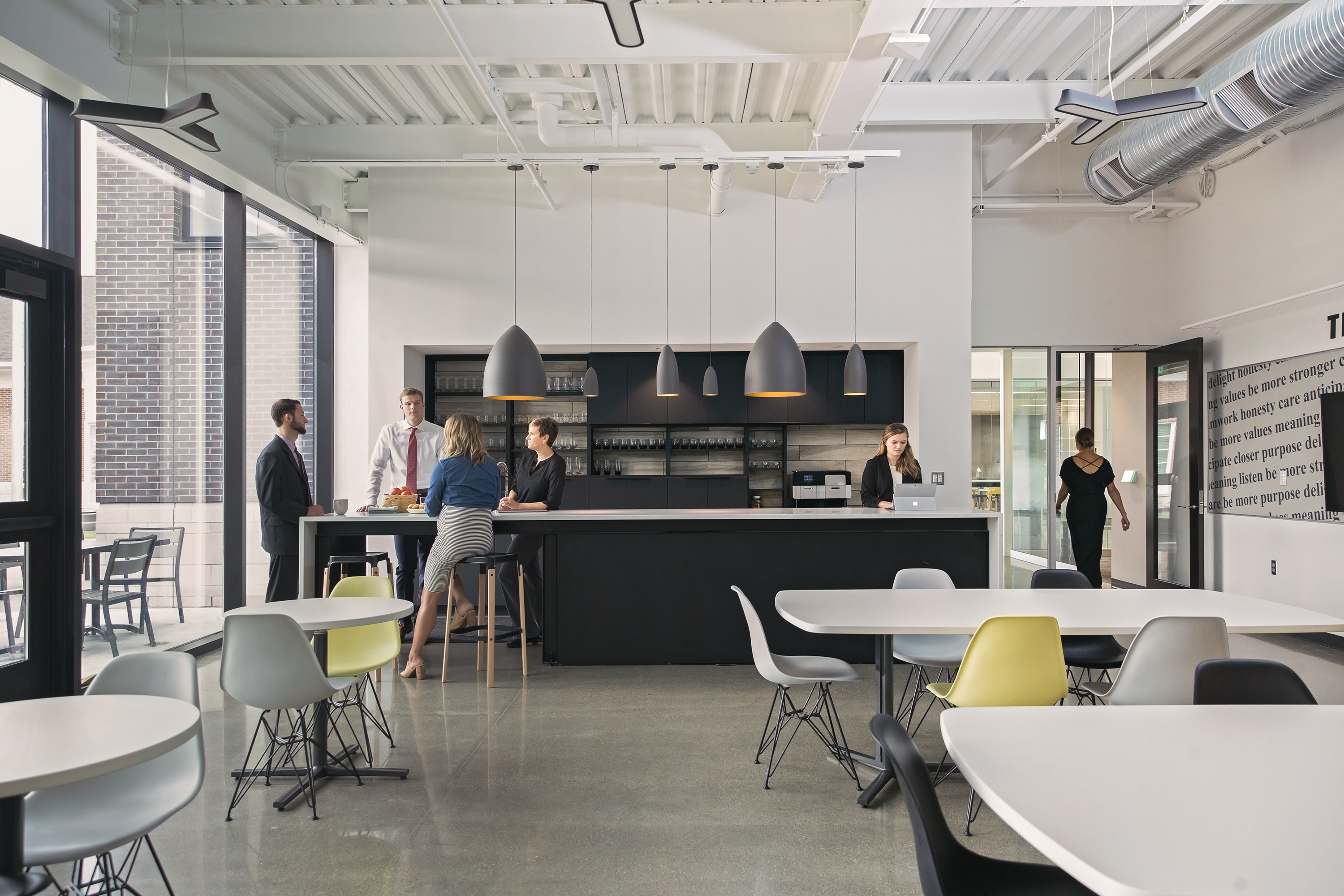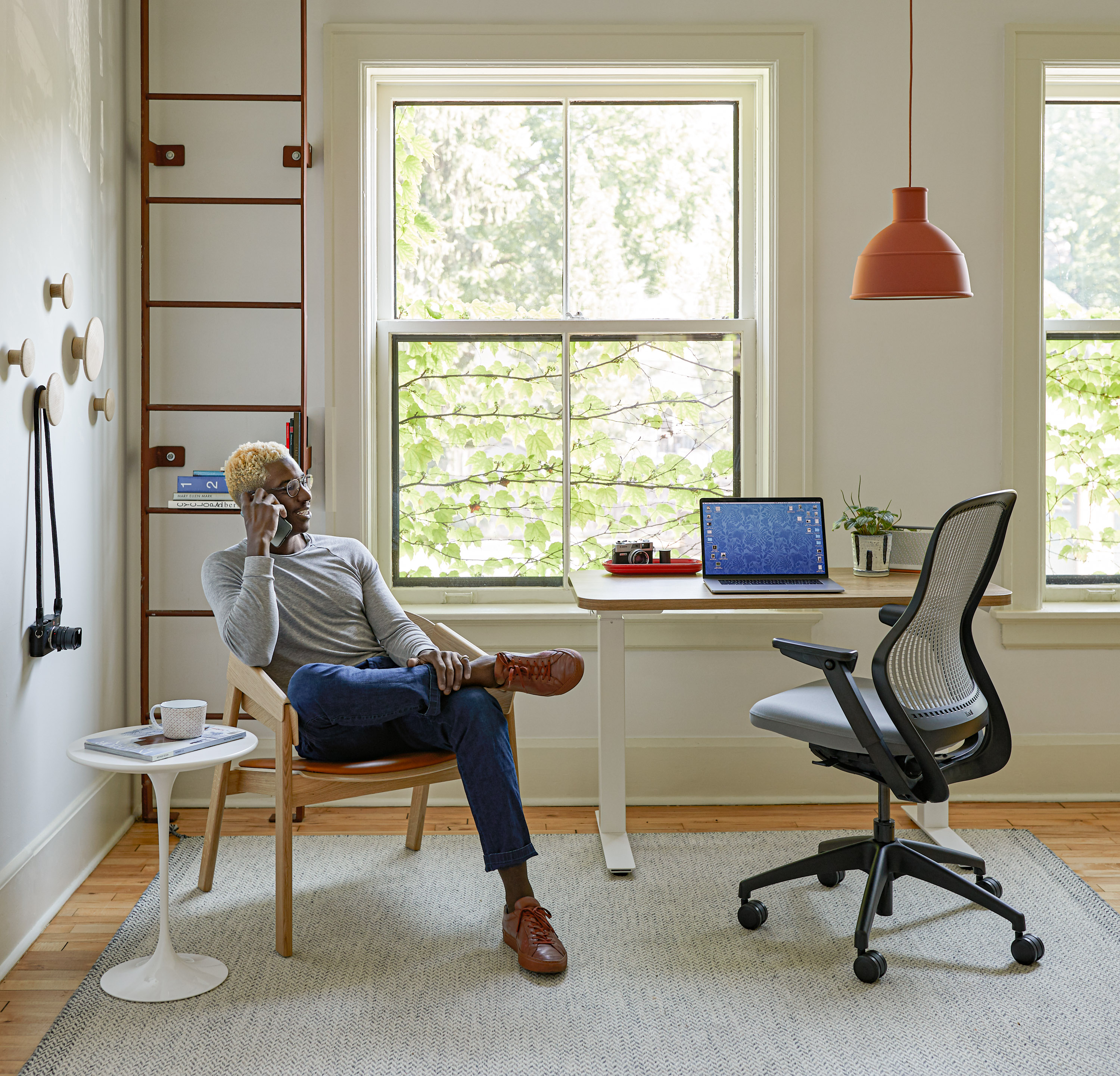
(ZEELAND, MI) – July 19, 2022 – Future Forum, a research-based consortium launched by Slack, with founding partners MillerKnoll, Boston Consulting Group, and MLT, to help companies better support the future of work, today released key findings from its latest global Pulse study which highlights that employees continue to want greater flexibility in where and when they work, and favor hybrid working strategies that give them the freedom to do so.
The Future Forum Pulse surveys more than 10,000 knowledge workers globally in the U.S., Australia, France, Germany, Japan, and the U.K. New data indicates that 80 percent of employees want flexibility in where they can work and 94 percent want more flexibility in when they work, continuing the demand for more flexibility among employees seeking more autonomy over their work processes than they had in the pre-pandemic work week.
The office remains an important anchor for employees, but the primary purpose of office space is shifting. Two-thirds of employees, 66 percent, say they prefer a hybrid arrangement with the option to access physical office spaces. When asked what drivers bring employees to the office:
- 74 percent say collaborating with co-workers/clients, building camaraderie, and facilitating
in-person meetings - 16 percent say having a quiet space to focus on getting work done
- 10 percent say putting in face time with management
However, mandates requiring employees work full-time from the office put employee retention at risk. Those employees working full-time in the office without the autonomy to work elsewhere are the least satisfied with their working arrangement, reporting significantly worse employee experience scores compared to hybrid and full-time remote employees, most notably for work-life balance and work-related stress and anxiety.
“Today’s workplace environment is centered around flexibility, and employees without it remain
at a strong risk of attrition,” said Brian Elliott, Executive Leader of Future Forum. “Companies
looking to build productive, successful teams need to think about how they provide flexibility not
only in where but also when people work.”

The Pulse data indicates that lack of schedule flexibility dramatically impacts employee experience scores. Compared to those with moderate schedule flexibility, knowledge workers who say they have little to no ability to set their own hours report 3.4 times worse work-related stress and anxiety and 2.2 times worse work-life balance. Employees with rigid work schedules also say they are 3 times more likely to “definitely” look for a new job in the next year (up from 2.6 times in February this year).
“Employees feel that they’ve performed well during the pandemic and desire more control over where and when they work. This doesn’t mean that offices are irrelevant,” says Ryan Anderson, VP of Global Research & Insights for MillerKnoll. “Employers seeking to support greater flexibility through hybrid working arrangements should reimagine how they will evolve their offices to meet employee expectations for greater camaraderie and community while also ensuring that home workspaces are safe and productive. This approach supports a wider array of productive activities than traditional office designs while helping to retain talent.”
To ensure that hybrid work and workplace strategies hit the mark, employers should focus on engaging employees more deeply and with greater, more transparent communication. Knowledge workers who believe their employer communicates transparently show markedly
higher scores for employee experience and engagement.
- Employees who don’t believe their company “is being very transparent regarding
post-pandemic remote working policies” are 3.4 times more likely to “definitely” look for a new position in the coming year. - Among executives, 66 percent believe they are being “very transparent,” but only 43 percent of employees agree.
- Employees who perceive their companies to be transparent have 12 times greater job satisfaction than employees who have the opposite perception.
“Unfortunately, many organizations feel they can’t reevaluate their work experience until people show up at the office. This wait-and-see approach leaves workers disengaged from the process of crafting a new work experience” says Joseph White, Director of Design Strategy for MillerKnoll. “At leading organizations we’re seeing deeper engagement and transparency show up in workplace pilot projects where employee feedback from brief surveys, focus groups, or team working agreements is being translated into new designs for spaces that are actively being tested and refined.”
For more findings, view the full Future Forum Q2 Pulse report. In October 2022, Future Forum
will release in-depth results from its next quarterly survey, including analysis of emerging trends in knowledge workers’ experience.
About MillerKnoll
MillerKnoll is a collective of dynamic brands that comes together to design the world we live in. MillerKnoll brand portfolio includes Herman Miller, Knoll, Colebrook Bosson Saunders, DatesWeiser, Design Within Reach, Edelman Leather, Fully, Geiger, HAY, Holly Hunt, KnollTextiles, Maars Living Walls, Maharam, Muuto, naughtone, and Spinneybeck|FilzFelt. MillerKnoll is an unparalleled platform that redefines modern for the 21st century by building a more sustainable, equitable and beautiful future for all.